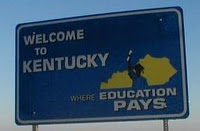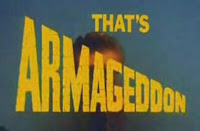Kentucky Seeks Biggest Rake Back Deal Ever from Full Tilt Poker
 Just yesterday I was drinking a soft drink, a bottle of Mello Yello wrapped in an “old-school”-ish label that looked a little like what was used when the drink was first introduced back in the late 70s. At one point I idly looked down at the “nutrition” information (those are scare quotes there) and noticed the disclaimer in bold letters above -- “CONTAINS NO JUICE.”
Just yesterday I was drinking a soft drink, a bottle of Mello Yello wrapped in an “old-school”-ish label that looked a little like what was used when the drink was first introduced back in the late 70s. At one point I idly looked down at the “nutrition” information (those are scare quotes there) and noticed the disclaimer in bold letters above -- “CONTAINS NO JUICE.”Being a poker player, these words had a pleasant ring to them. No one likes the “juice” -- i.e., the money taken out of buy-ins or the “rake” dragged by the house to run their games.
A little later in the day I started to hear a few rumblings about a lawsuit that had been filed by the Commonwealth of Kentucky against Full Tilt Poker a couple of weeks ago. That’s in addition to the rumblings of borborygmi in my stomach, of course.
(Took over four years to use that word in a post. Drawing from an experience working in a pediatric gastroenterologist’s office there. Maybe one day I’ll be able to use “hepatosplenomegaly.”)
Sounded like in this lawsuit the focus here was in fact on the “juice” or “rake” taken by Full Tilt from the games. I continued to listen.
This wasn’t the ongoing seizure-domain case that the Kentucky Supreme Court recently overturned (again) “due to the incapacity of domain names to contest their own seizure.” In that one, one of the defendants, a representative of True Poker (truepoker.com), has filed an affidavit saying that an employee of the company that owned the site (Yatahay Limited) is a member of the Interactive Media and Entertainment Gaming Association (iMEGA) and thus iMEGA does in fact technically have standing there to represent the defendants. The Kentucky Supreme Court is still brooding over that one.
Nor was this the story from just a couple of days ago about a federal grand jury in Manhattan investigating Full Tilt Poker and perhaps preparing to bring indictments against its owners over some sort of money-laundering violations. A lot that is being unsaid in that story thus far, although both Howard Lederer and Chris “Jesus” Ferguson were named as potential targets in the report.
No, this was something new. Another, novel legal tactic designed to bring down online poker in the U.S., it seemed. Shortly after those initial rumblings, the story broke in earnest -- I first saw it over on Poker News Daily. Indeed, in a complaint filed on March 25, 2010, Kentucky sued Full Tilt Poker for allowing its residents to play on the site.
And indeed, it’s about the rake. Kentucky wants its rake back. And then some.
 The 14-page complaint begins with a characterization of “The Full Tilt Defendants” and what the Commonwealth believes they have done to deserve this legal action. Reference is made to an entity called “Pocket Kings Ltd” in Dublin, Ireland, which is said to have operated with “certain other unknown entities” to have “acted in concert in a joint venture to facilitate, host, operate, and profit from... Full Tilt Poker.” The arrangement is characterized as “a series of shell companies” that has been constructed “to conceal [the defendants’] identities and avoid their legal responsibilities.”
The 14-page complaint begins with a characterization of “The Full Tilt Defendants” and what the Commonwealth believes they have done to deserve this legal action. Reference is made to an entity called “Pocket Kings Ltd” in Dublin, Ireland, which is said to have operated with “certain other unknown entities” to have “acted in concert in a joint venture to facilitate, host, operate, and profit from... Full Tilt Poker.” The arrangement is characterized as “a series of shell companies” that has been constructed “to conceal [the defendants’] identities and avoid their legal responsibilities.”Then comes a long list of actions the Full Tilt Defendants “purposefully and knowingly” have done, mostly concerning hosting online poker games available to Kentucky residents -- 13,000 of them, as recently noted by iMEGA in the Kentucky Court of Appeals. And, importantly, having “take[n] a percentage of the amount bet, won or lost as the ‘rake,’ ‘take out’ or commission for hosting the poker games” for their own pecuniary gain.
Along the way, the actions of the Full Tilt Defendants are characterized as “tortuous.” That would mean purposefully circuitous, not causing torture or suffering (in other words, what Kentucky is trying to do to online poker players.)
Also, there is a sort of funny, comprehensive reference to the Kentucky players as “losers.” No, that’s not a comment on their poker skills, but a technical reference to KRS 372.020, that part of the state’s civil law that says if in a gambling wager “a person loses to another at one (1) time, or within twenty-four (24) hours, five dollars ($5) or more, or anything of that value” that person is entitled to recovering twice its value plus court costs and attorney’s fees. Accordingly, the Full Tilt Defendants are described as “winners” here.
But wait. KRS 372.040 adds that if “the loser” doesn’t sue “the winner” within six months “and prosecute the suit to recovery with due diligence, any other person may sue the winner and recover treble the value of the money or thing lost” plus court costs and attorney’s fees, if that suit is brought within five years of the wager/payment having occurred.
And that’s what is happening here. Since no one else has sued Full Tilt to get their rake back, Kentucky is doing it. They are suing to get that rake back for the period covering March 25, 2005 through March 25, 2009.
And yes, they want treble. And that means trouble.
Not just for Full Tilt, actually. The remainder of the complaint lists all of the other sites Kentucky intends to go after as well -- the “Other Unknown Defendants” who operate those other sites hosted by the contested domains in that other suit. “As the name and place of residence of the Unknown Defendants are discovered,” so goes the threat, “this Complaint with be amended accordingly.”
Wild stuff. No idea whether or not this suit has something going for it or if it “contains no juice” (so to speak). Not really sure how it is that Kentucky can sue to recover what Kentuckians lost to the rake. (Nor how they expect to go about computing that amount.) In any event, I can’t help but think that whatever happens with regard to the suit, it cannot possibly be good either for Full Tilt Poker or for online poker, generally speaking.
Put that with the impending June 1 deadline for banks to begin complying with the Unlawful Internet Gambling Enforcement Act of 2006, and I’m starting to hear a different sort of rumble -- that of U.S. players seriously contemplating removing their funds from their online poker accounts.
Such is online poker for Americans. Never mellow.
Labels: *the rumble, Full Tilt Poker, Kentucky, law, rake, UIGEA












 . First mistake was even playing this weak-ass cheese. I was vaguely influenced by the fact that
. First mistake was even playing this weak-ass cheese. I was vaguely influenced by the fact that 

 . They both check, and I bet the pot with my top two pair. They both call, and I even say out loud “straight draw.” Another trey comes on the turn, and they both check again. I’m frozen, and make my third mistake of the hand by checking as well. I have to bet there if I’m going to proceed at all in this hand.
. They both check, and I bet the pot with my top two pair. They both call, and I even say out loud “straight draw.” Another trey comes on the turn, and they both check again. I’m frozen, and make my third mistake of the hand by checking as well. I have to bet there if I’m going to proceed at all in this hand. , and both check again. Mesmerized by the pair on board, I somehow forget about the straight draws and make a horrible bet of 950 (about two-thirds the pot). Both LawChica and PokerPeaker call, and both show 10-9-x-x to split the booty.
, and both check again. Mesmerized by the pair on board, I somehow forget about the straight draws and make a horrible bet of 950 (about two-thirds the pot). Both LawChica and PokerPeaker call, and both show 10-9-x-x to split the booty. 
















